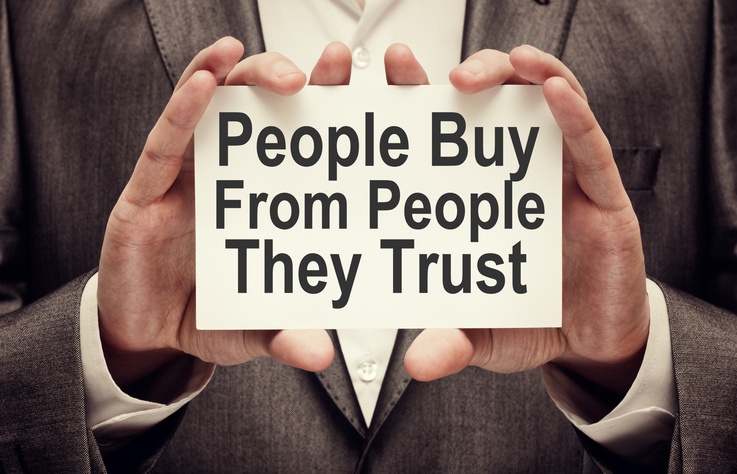As private companies adopt blockchain, it also offers the promise of a more accessible, more transparent and efficient government. With blockchain technology, governments can simplify the management of trusted information and make it easier for agencies to gain access to critical information while still maintaining security.
So far, Eastern European governments have led the way in blockchain for government, most notably Estonia’s, which implemented blockchain in 2012 across its healthcare, judiciary, legislature and security registries. Many countries now have their own projects underway and, if successful, could have a major global impact.
As government blockchain adoption grows, blockchain is transforming regulatory compliance. Here are the ways in which blockchain is impacting government policies around the world.
Improving Financial Regulatory Compliance
KYC (Know Your Customer) and AML (Anti-money Laundering) requirements have become the primarily means of allowing the government to monitor customer interactions with financial institutions. However, they have become very time consuming and costly for both customers and financial entities.
In fact, industry statistics peg the false-positive rate for suspicious activity alerts at between 75% and 90%. In addition, the 2016 Dow Jones and Association of Certified Anti-Money Laundering Specialists (ACAMS) Global Anti-Money Laundering Survey found that 55% of alerts take over 5 minutes to close, 30% take longer than 30 minutes, and 10% take more than an hour.
The transparent nature of blockchain will permit financial institutions and government regulatory agencies to communicate directly with each other on the same network. As a result, blockchain makes for a far more efficient compliance environment versus the current model where identifying violations take longer and must involve a third-party.
Already the U.S. Federal Reserve Bank and the European Banking Authority are doing research into the technology. With the development of government backed, blockchain-based registries, greater compliance can be achieved. This will allow financial institutions to identify suspicious activity faster and with greater accuracy so that governments can act on financial crimes more rapidly.
In addition, blockchain fundamentally transforms the way in which financial companies and businesses in other industries interact with the government. Rather than asking companies to comply with the law where the highest level of compliance depends on the company’s ability to cover the costs, blockchain will create a level playing field for businesses of all sizes.
Social Services Data Sharing: Consent and Privacy
Government social services are one major area that could be positively impacted by the implementation of blockchain. That is because the delivery of social services generally consists of a network of both government and private partners.
In addition, information shared across partners is often highly sensitive (e.g. personal identification documents, medical records, case information). With a complex network of parties that may have conflicting or even competing interests, there is a tendency not to readily share data and expertise.
In most cases, providers have little to no visibility into how these services are received by individuals. As a result, issues such as data sensitivities, costs, and regulatory restrictions have plagued governments to the point of limiting the government’s ability to serve the public effectively, especially in times of crisis.
One major challenge of data sharing has been ensuring that all partners comply with privacy and individual consent laws. With blockchain, governments can establish greater trust by implementing smart contracts that adhere to regulatory statutes. The smart contracts control how and when consent is applied.
Government Blockchain Adoption Begins With Improving Cybersecurity
As the default repository for the sensitive data of its citizens, governments have increasingly become prime targets for hackers. However, instead of accepting these attacks as a sign of the digital era, governments are finding ways to mitigate these risk by deploying blockchain solutions.
While governments may be slow to adopt blockchain as a result of concerns about what will happen when something goes wrong, testing blockchain in real environments will help to drive quality applications.
Already the Department of Homeland Security (DHS) has funded blockchain startups who are focused on research and development. In June, DHS awarded the Austin-based startup Factom a grant to help advance the security of digital identity for Internet of Things (IoT) devices, such as surveillance cameras and sensors.
The initiatives are a part of the government’s push to achieve the highest levels of cybersecurity as a result of the passage of the Federal Information Security Modernization Act (FISMA). With blockchain, the government can improve security by eliminating the single-point-of-failure risk, which can help make a breach virtually impossible.
The project, entitled “Blockchain Software to Prove Integrity of Captured Data From Border Devices” will focus on authenticating device identity to prevent spoofing, and ensure the integrity of data captured from those devices.
Solving Government Challenges With Blockchain
Some of the most pressing problems that governments around the world face are essentially problems of scale. This is why blockchain is expected to play a major role in the ability of governments to modernize their services in the coming years.
Although we are still in the the beginning stages of governments understanding and exploring this technology, many are recognizing its potential and are starting to explore applications that address the challenges of sharing data. Given the vast number of potential applications for blockchain, there is a good possibility that governments and governance will become significantly more decentralized in the future.
At Achievion, our blockchain architects are experienced in designing and developing solutions for both private and government sector entities. As blockchain technology evolves, our team can guide you in uncovering new opportunities for improving your departmental operations with blockchain and help you to determine how to best implement your vision.
If you’re ready to explore the possibilities of the blockchain for government, contact us today and let’s schedule a time to discuss your project.









